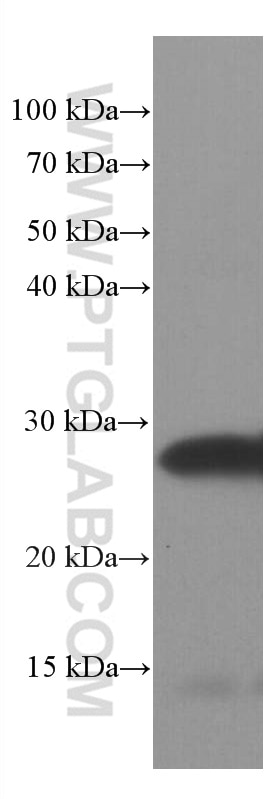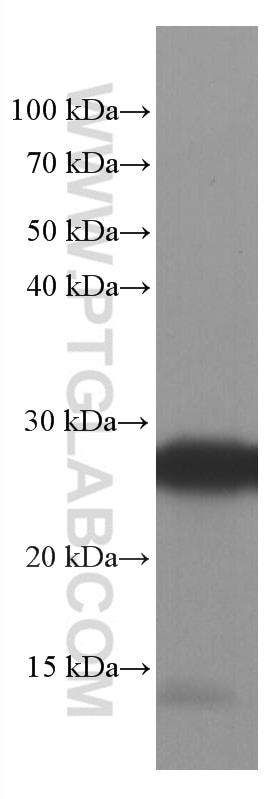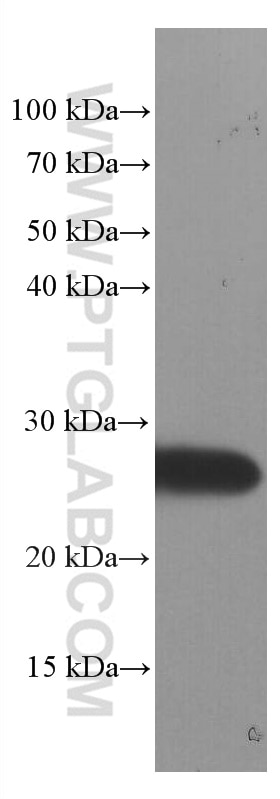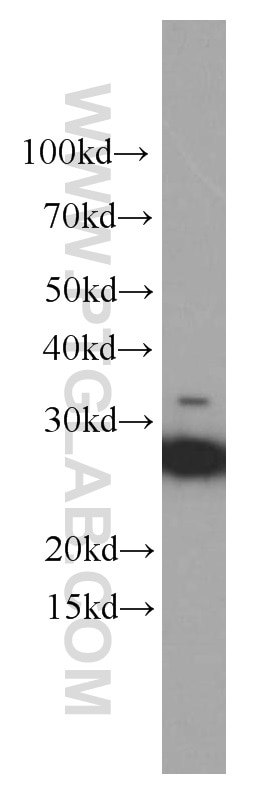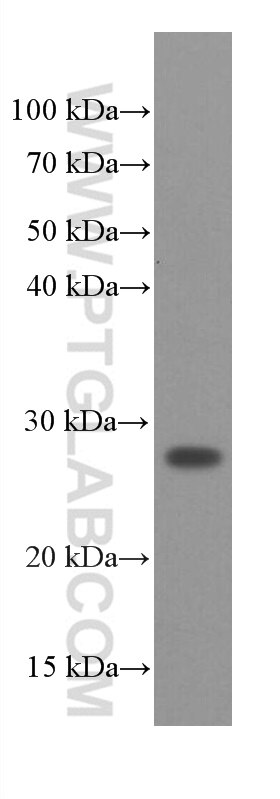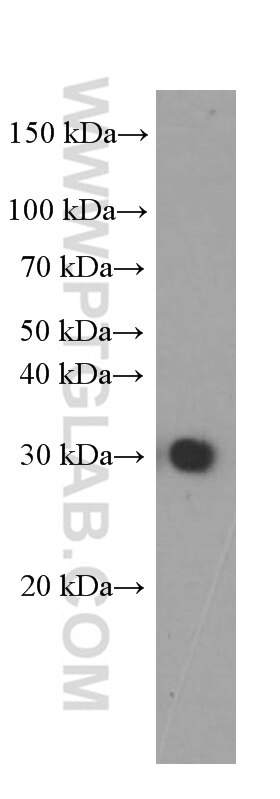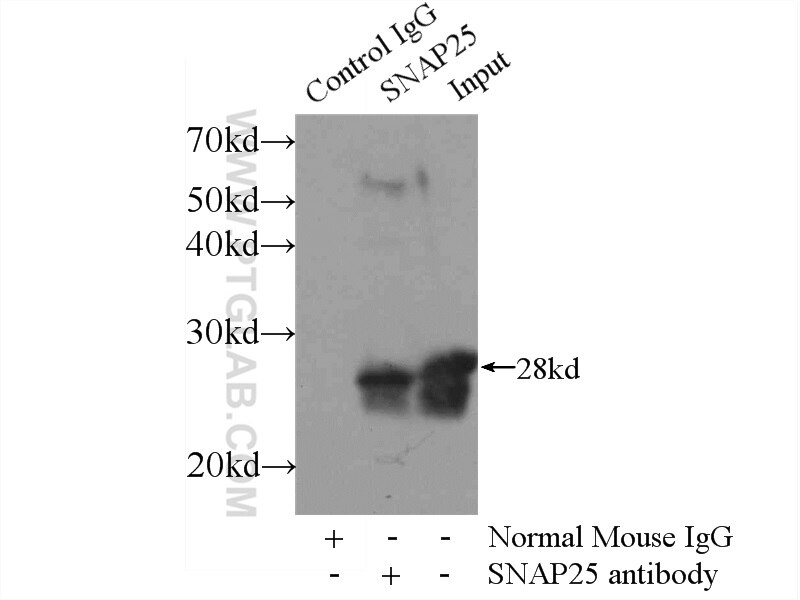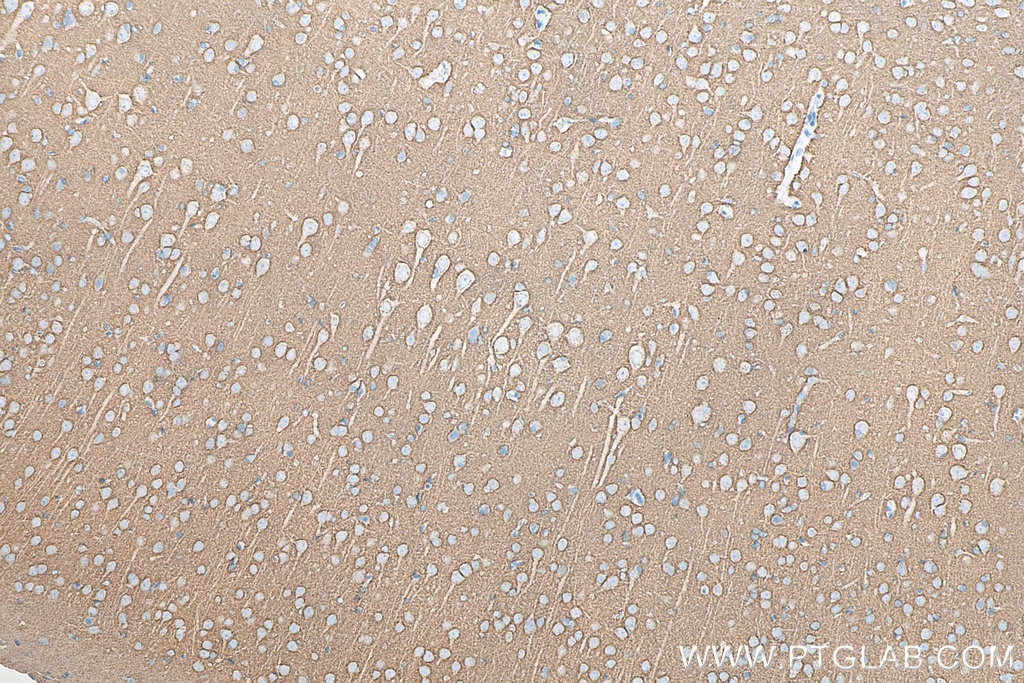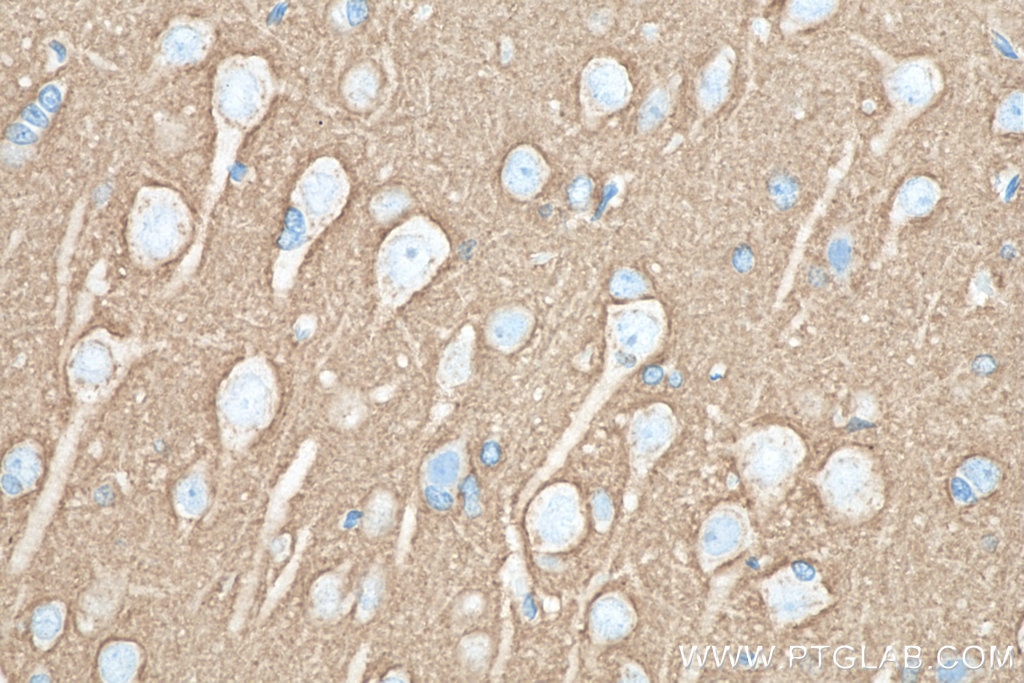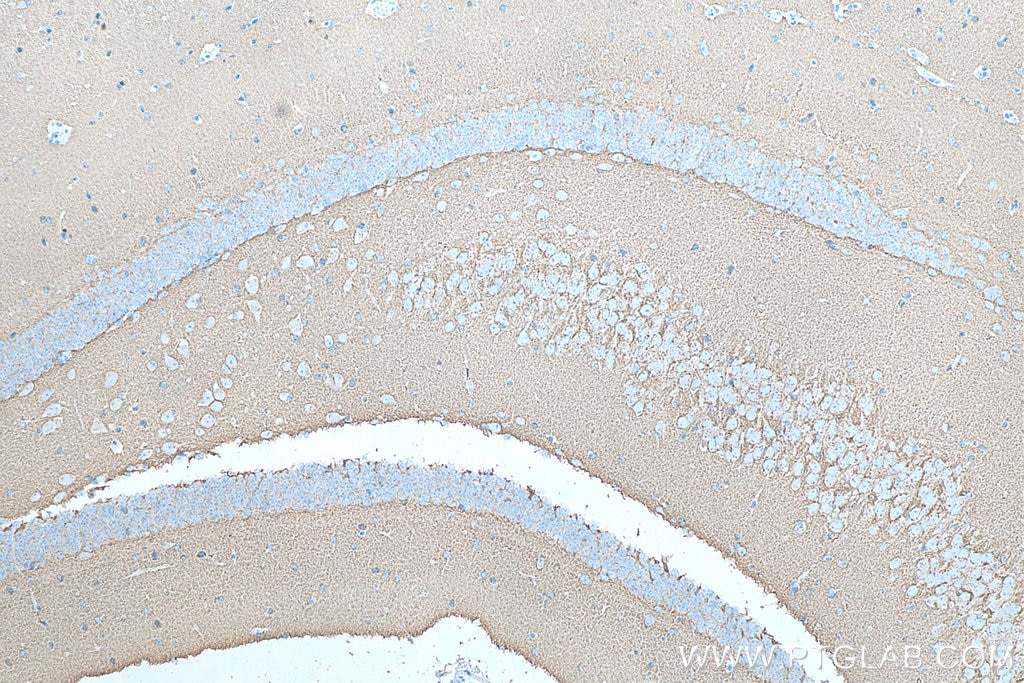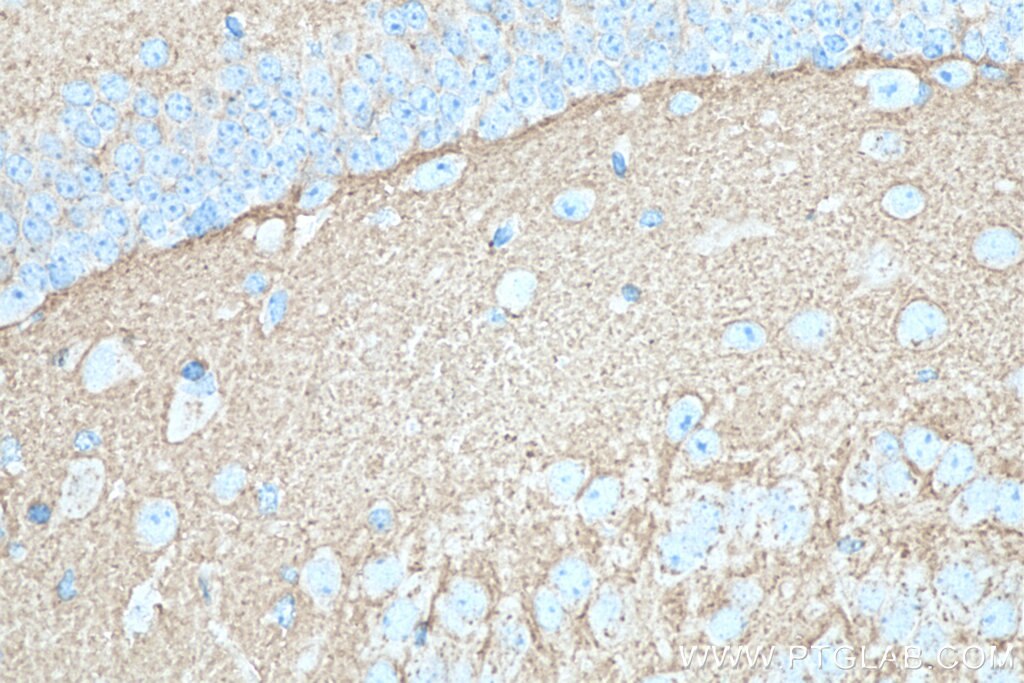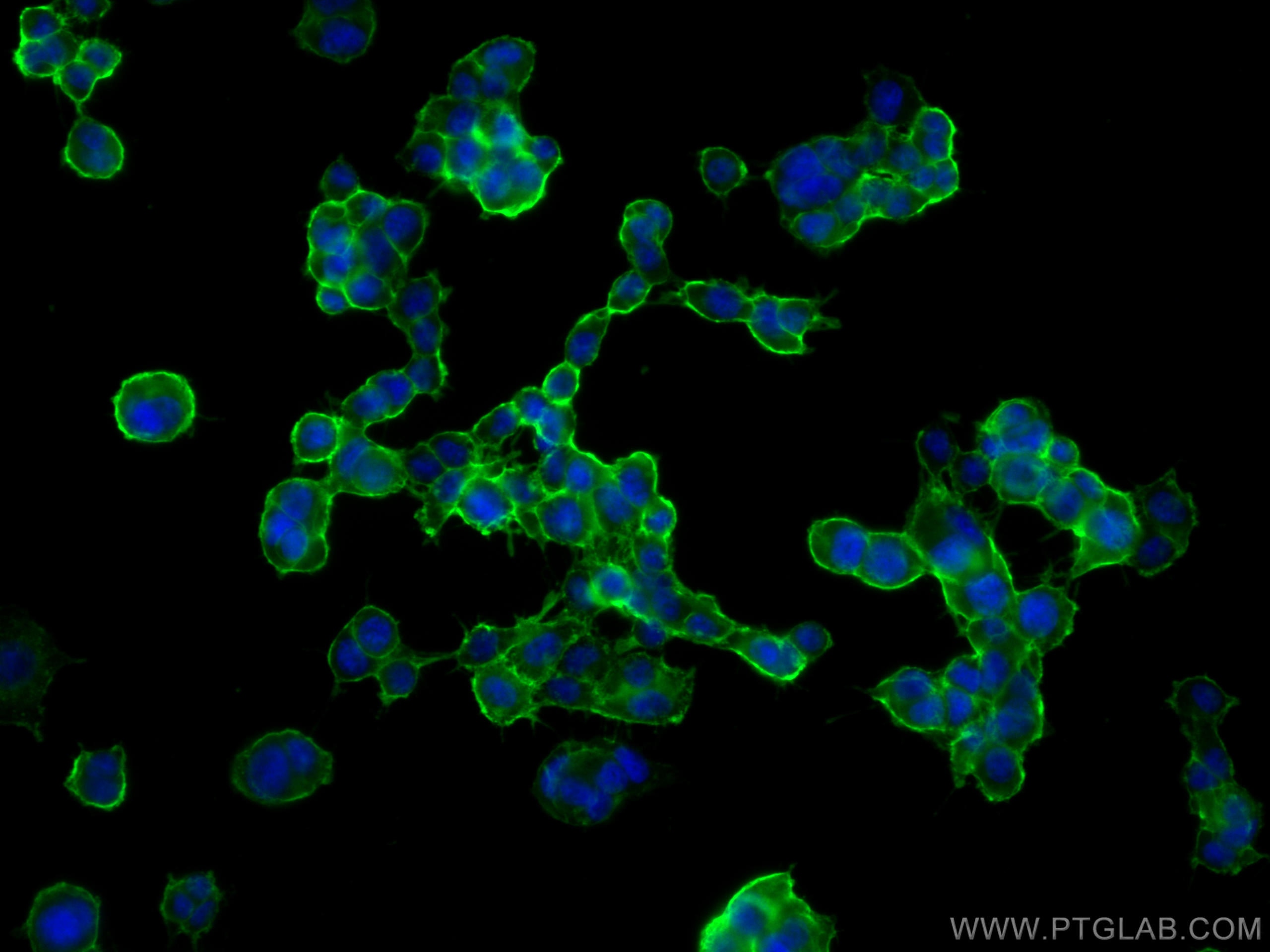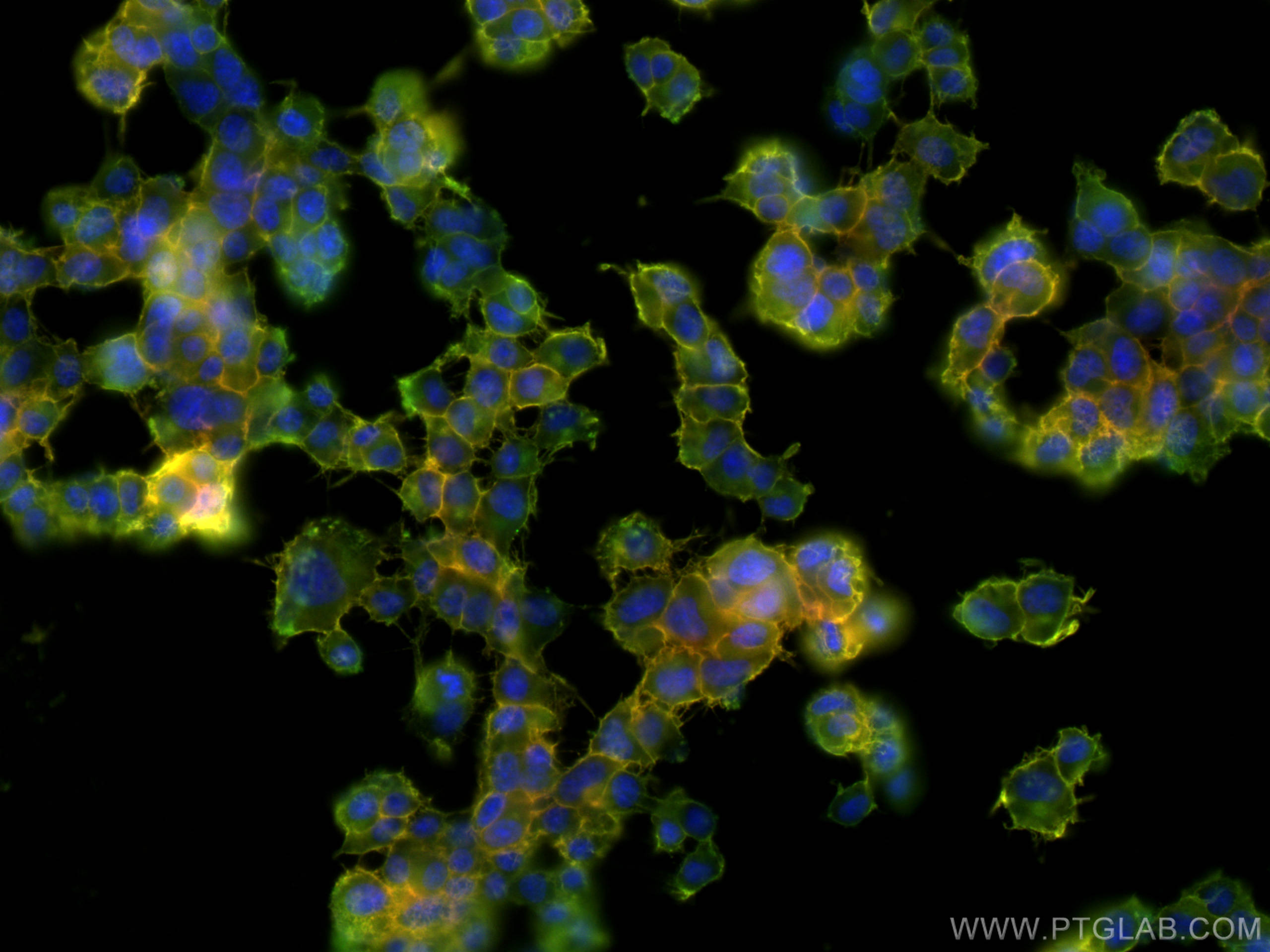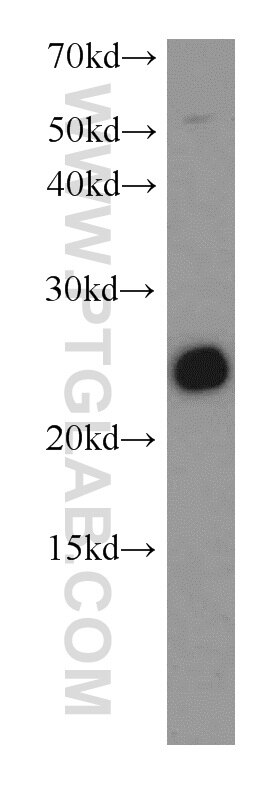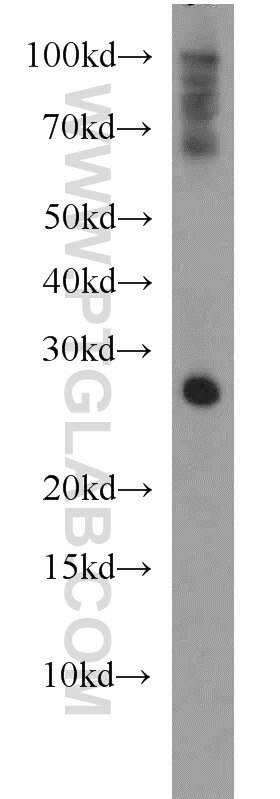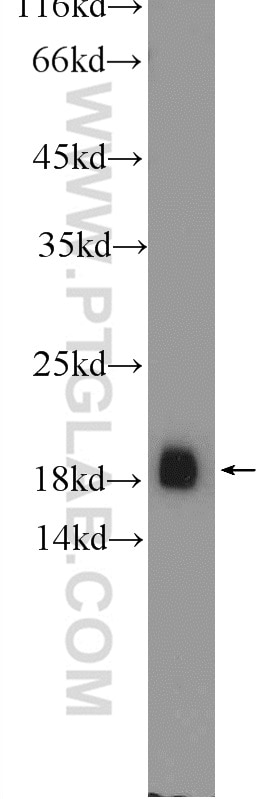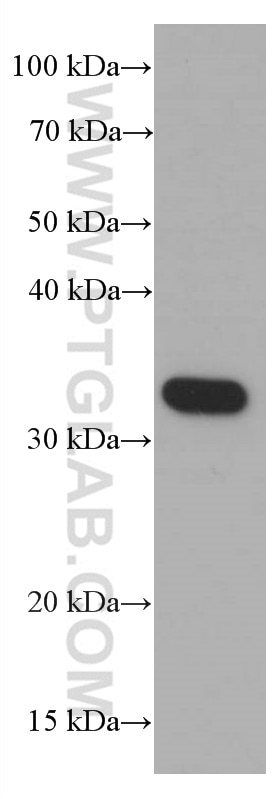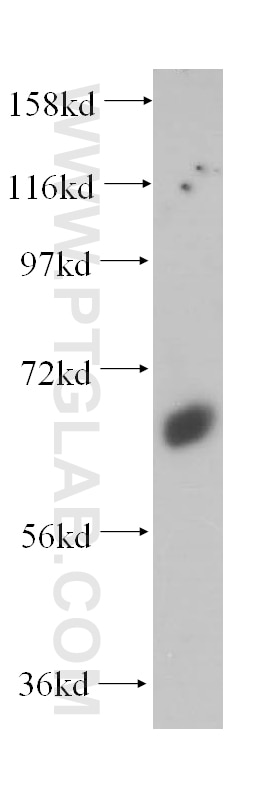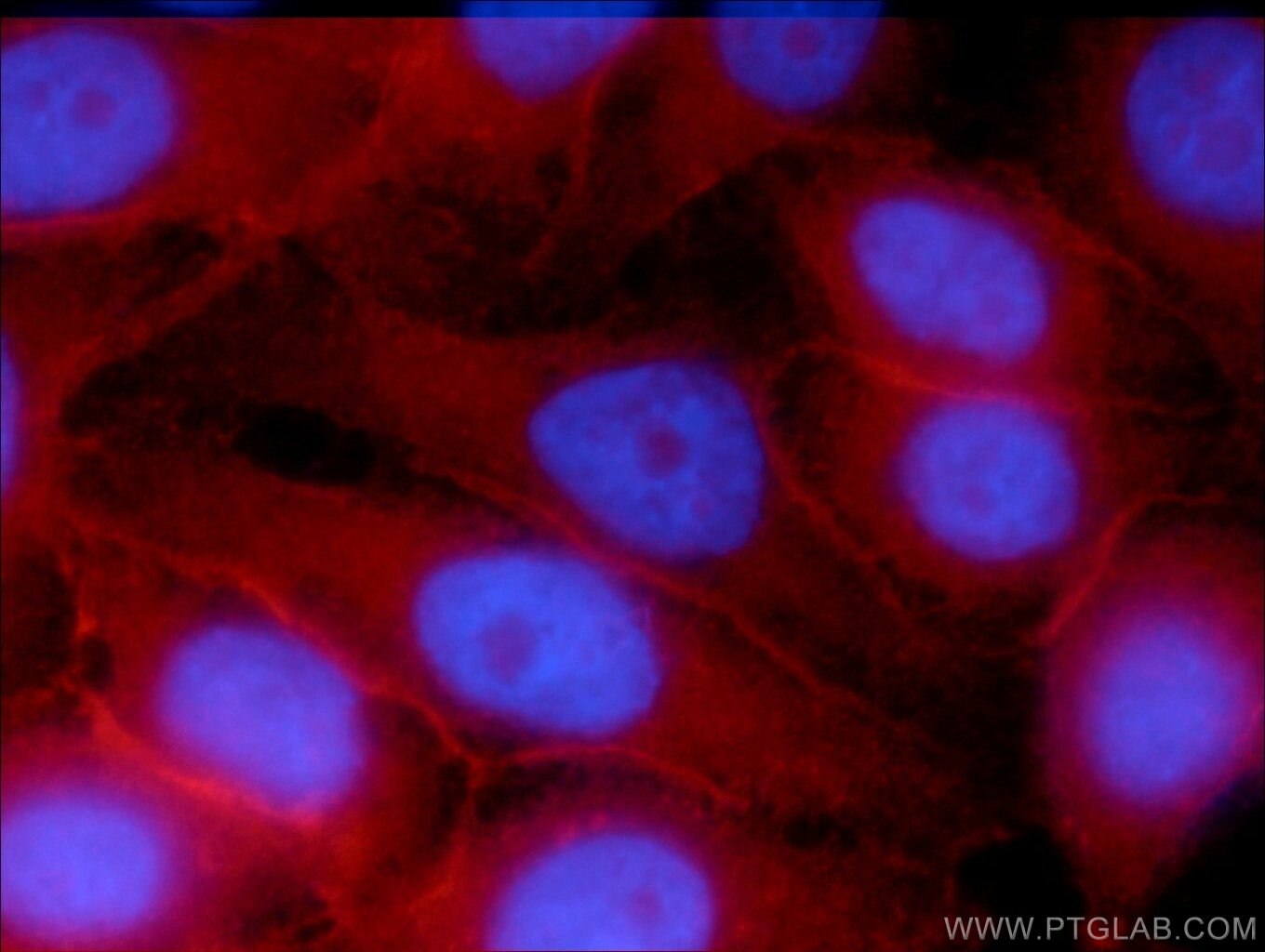SNAP25 Monoklonaler Antikörper
SNAP25 Monoklonal Antikörper für IF, IHC, IP, WB, ELISA
Wirt / Isotyp
Maus / IgG2b
Getestete Reaktivität
Hausschwein, human, Maus, Ratte
Anwendung
WB, IP, IHC, IF, ELISA
Konjugation
Unkonjugiert
CloneNo.
3E4B7
Kat-Nr. : 60159-1-Ig
Synonyme
Galerie der Validierungsdaten
Geprüfte Anwendungen
| Erfolgreiche Detektion in WB | Hausschwein-Hirngewebe, fetales humanes Hirngewebe, HEK-293-Zellen, Maushirngewebe, PC-12-Zellen, Rattenhirngewebe |
| Erfolgreiche IP | Maushirngewebe |
| Erfolgreiche Detektion in IHC | Rattenhirngewebe, Maushirngewebe Hinweis: Antigendemaskierung mit TE-Puffer pH 9,0 empfohlen. (*) Wahlweise kann die Antigendemaskierung auch mit Citratpuffer pH 6,0 erfolgen. |
| Erfolgreiche Detektion in IF | PC-12-Zellen |
Empfohlene Verdünnung
| Anwendung | Verdünnung |
|---|---|
| Western Blot (WB) | WB : 1:5000-1:20000 |
| Immunpräzipitation (IP) | IP : 0.5-4.0 ug for 1.0-3.0 mg of total protein lysate |
| Immunhistochemie (IHC) | IHC : 1:1000-1:4000 |
| Immunfluoreszenz (IF) | IF : 1:500-1:2000 |
| It is recommended that this reagent should be titrated in each testing system to obtain optimal results. | |
| Sample-dependent, check data in validation data gallery | |
Veröffentlichte Anwendungen
| WB | See 6 publications below |
| IHC | See 1 publications below |
| IF | See 2 publications below |
Produktinformation
60159-1-Ig bindet in WB, IP, IHC, IF, ELISA SNAP25 und zeigt Reaktivität mit Hausschwein, human, Maus, Ratten
| Getestete Reaktivität | Hausschwein, human, Maus, Ratte |
| In Publikationen genannte Reaktivität | human, Maus, Ratte |
| Wirt / Isotyp | Maus / IgG2b |
| Klonalität | Monoklonal |
| Typ | Antikörper |
| Immunogen | SNAP25 fusion protein Ag6695 |
| Vollständiger Name | synaptosomal-associated protein, 25kDa |
| Berechnetes Molekulargewicht | 23 kDa |
| Beobachtetes Molekulargewicht | 25-30 kDa |
| GenBank-Zugangsnummer | BC010647 |
| Gene symbol | SNAP25 |
| Gene ID (NCBI) | 6616 |
| Konjugation | Unkonjugiert |
| Form | Liquid |
| Reinigungsmethode | Protein-A-Reinigung |
| Lagerungspuffer | PBS mit 0.02% Natriumazid und 50% Glycerin pH 7.3. |
| Lagerungsbedingungen | Bei -20°C lagern. Nach dem Versand ein Jahr lang stabil Aliquotieren ist bei -20oC Lagerung nicht notwendig. 20ul Größen enthalten 0,1% BSA. |
Hintergrundinformationen
The synaptosomal associated protein of 25 kD (SNAP-25) was first identified as a major synaptic protein by Wilson and colleagues. The protein interacts with syntaxin and synaptobrevin through its N-terminal and C-terminal -helical domains. Its palmitoylation domain is located in the middle of the molecule that contains four cysteine residues. Mutation of the cysteines abolishes palmitoylation and membrane binding. Several elegant studies using synaptosome preparations and permeabilized PC12 cells have suggested that SNAP-25 may act in the late post-docking steps of exocytosis. By limited proteolysis and in vitro binding assay, it is proposed that the two helix domains act independently and contribute equally to form the SNARE complex with syntaxin and synaptobrevin. It seems that a major regulatory element is located in the C-terminus of SNAP-25. Removing a 9 amino acid sequence of SNAP-25 inhibited neurosecretion in chromaffin cells.
Protokolle
| Produktspezifische Protokolle | |
|---|---|
| WB protocol for SNAP25 antibody 60159-1-Ig | Protokoll herunterladen |
| IHC protocol for SNAP25 antibody 60159-1-Ig | Protokoll herunterladen |
| IF protocol for SNAP25 antibody 60159-1-Ig | Protokoll herunterladen |
| IP protocol for SNAP25 antibody 60159-1-Ig | Protokoll herunterladen |
| Standard-Protokolle | |
|---|---|
| Klicken Sie hier, um unsere Standardprotokolle anzuzeigen |
Publikationen
| Species | Application | Title |
|---|---|---|
J Extracell Vesicles Identification of the SNARE complex that mediates the fusion of multivesicular bodies with the plasma membrane in exosome secretion | ||
Neuropsychopharmacology Autism risk gene KMT5B deficiency in prefrontal cortex induces synaptic dysfunction and social deficits via alterations of DNA repair and gene transcription. | ||
Biochim Biophys Acta Mol Basis Dis Mice with the Rab10 T73V mutation exhibit anxiety-like behavior and alteration of neuronal functions in the striatum | ||
Neuroscience SNAP25/syntaxin4/VAMP2/Munc18-1 Complexes in Spinal Dorsal Horn Contributed to Inflammatory Pain. | ||
Brain Commun Transcriptomic analysis of human brains with Alzheimer's disease reveals the altered expression of synaptic genes linked to cognitive deficits. | ||
